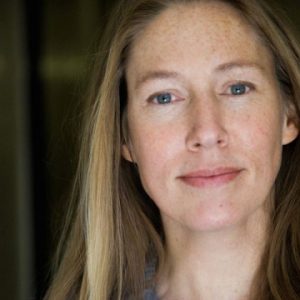– Tracy Rączek (she/her)
“A tear in cloth can be too large for a patch” says the Pashtun proverb.

Recalling his UN fieldwork in a country where peace and economic prosperity seemed impossible, my colleague’s fingers turned stiff to gouge a pretend hole in his pants. Failing to stitch it, he slouched, wearied by his pretend loss and too real recollections. “See? The damage is far beyond repair.” My heart hurt for the country. As I walked away, I also selfishly wondered how many ruptures in my life had I made that were too deep to mend.
I do damage. I do damage because I am stubborn. My stubbornness leaves me with broken bones, abandoned relationships, and lost jobs. Yes, I am the kind of stubborn that has carried an injured man down a mountainside and fought bosses that sexually harass. But I also struggle to genuinely apologize, even when I know I am wrong – even to those with whom I am closest and love the most. So when she called last April – that precious old friend whom I had faulted and not spoken to 20 years since – Covid was the perfect scapegoat to remain silent.
At the start of this pandemic, we were pounded in NYC. TV and radio ceaselessly poured reports of the rampaging disease and skyrocketing deaths into our apartments that we paced within. Temporary morgues stacked up in alleys and parks around us. Family, acquaintances, and colleagues fell ill; some died without warning. We consoled each other across the ethernet; across the airshaft of our tenement building. Boarded streets fell eerily quiet except for sirens that screamed by our windows, then echoed down the city’s canyons.
I stopped listening to the news, picking up calls. Stopped listening to anyone. I was never good at listening to others anyway. In March I was walloped by chest pains and a positive Covid diagnosis; trapped inside a baton-beaten one-tonne body, I was forced to fight for my breath – a fight I nearly lost and try my hardest to forget.
“Just calling to check you are OK in NYC — with the virus and all,” a slight strain in her gentle voice. She was “that friend” in your twenties, when you are joyous and foolish; bold and broke. She was sweet. I was wild. In our tribe of musicians, ski-bums and vagabonds, she and I were inseparable for years and made a point to weave our days and lives together — steeped like tea. I can’t recall which joke was hers or mine, only memories of howling together hiking under a full moon in the mountains; searching for a water-hole in the desert; living in adjacent rustic cabins by mossy woods in Alaska. It was there, in Alaska, that our friendship fell apart. In an art gallery, over a glass cabinet full of Russian stacking dolls, during a fight of my making, I ended our friendship.
For the next 10 years or so, we did not speak. Eventually written words, on holiday cards, were slipped under the wall that I had built between us. Hers were always colorful, with hand drawings of Alaskan wildflowers, tales of huckleberry picking, well-planned river trips, pictures of her children. Mine dripped with political sarcasm and adventures that too often ended in bike crashes or nearly sunken boats. Both tinged with a hint of longing.
Now she was on my phone. I pressed “voicemail”, like an obsessed lover, and listened to her message three times. “Just calling to check you are OK in NYC — with the virus and all…” By this time, in April, I had escaped from the city to my tiny off-the-grid Catskills cabin. Heated by a woodstove, without electricity or running water, and tucked into 45 acres of woods, I am ever grateful for it. Now it would allow me to walk without a mask and to rest – or more accurately collapse – whenever I needed. I did not have energy to call her back, reopen a deep wound and try to repair it. But something happens when you vomit on the ground, your mind spirals outward and you stay up all night fighting to breathe like you are drowning and you are not sure you will make it till dawn. Then you do – but you don’t know if and when it will happen again. You care more deeply about each small thing afterwards. Everything, achingly, matters. And, oddly, nothing does. Risk and vulnerability and values change proportion.
She picked up.
Sitting in my cabin, in the only spot with a mobile signal, staring out the window to the hill of trees, yellow-green with spring buds, focusing on my breath as we talked — something I must do more now — I let it out: “I am so very sorry for what happened back then in Alaska. I can be so stubborn. I am sorry.” Ever kind, she listed traits that she would trade-in for better ones. We chalked it all up to youthful stupidity and arrogance then dove appreciatively into each other’s insights of the world today. We mourned time together lost and belly-laughed over memories shared, trying to pry apart who said this and who did that so long ago — an impossible task. “Perhaps” she noted, “amid all the space of Alaska, maybe we were free to become more of ourselves and less of each other?”
Finally, after more than two hours passed, we rested on plans to meet as soon and as frequently as our lives allowed, once I am strong enough, and once we all feel safe enough to travel. Reluctant to hang up, reality pressed. Her pre-teen daughter was painting their Anchorage kitchen gold, unwatched and without a drop-cloth. Our Catskill cabin was getting dark and cold — the woodstove fire and lamps needed tending.
There is, of course, a very real chance we will not meet again. But she is kind and I am stubborn so I will mend best I can.

No comment yet, add your voice below!